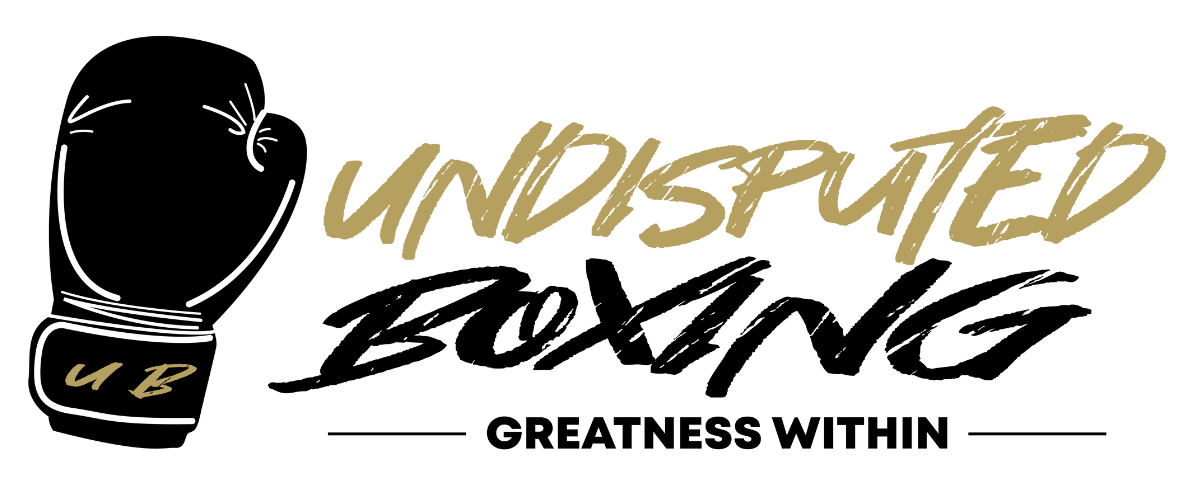Fifteen Tip's For First Amateur Fight
Preparing for your first amateur boxing match can be both exciting and nerve-wracking. As an amateur boxer, you are stepping into the ring to showcase your skills and demonstrate your passion for the sport. This blog post aims to provide insightful tips and guidance on how to prepare for your first amateur boxing match. Whether you are a complete beginner or have some prior experience, these words will cover everything you need to know to enter the ring confidently and perform your best. Let's get started!
1. Train with a reputable coach:
Partnering with an experienced coach is crucial for your preparation. Look for coaches who have a good track record and understand your goals. They should be well-versed in boxing techniques, strategies, and have previous experience with amateur matches.
2. Develop a solid training routine:
Consistency is key when it comes to training. Create a well-rounded training routine that includes both physical conditioning and boxing-specific skills. Aim for a balance between strength training, cardio exercises, and boxing drills. Don't forget to work on your footwork, defensive techniques, and offensive combinations.
3. Increase your stamina and endurance:
Amateur boxing matches can be physically demanding, so you must focus on building your stamina and endurance. Incorporate activities such as running, swimming, or cycling into your training routine to improve your cardiovascular fitness. Interval training will help you simulate the intensity of a fight, alternating between periods of high-intensity exercises and recovery.
4. Perfect your technique:
Focus on honing your boxing technique. Practise your punches (jabs, crosses, hooks, and uppercuts) on a heavy bag, shadow boxing, and hitting mitts with your coach. Work on proper form and maintain a good balance while throwing your punches. This will help you unleash your punches effectively and avoid potential injuries.
5. Develop defensive skills:
Defence is just as important as offence in boxing. Practice slipping, ducking, bobbing, and weaving to avoid incoming punches. Learn to keep your hands up to protect your chin and body. Spar with partners who can challenge you, forcing you to practise your defensive skills under realistic circumstances.
6. Get comfortable with sparring:
Sparring is a crucial aspect of your training leading up to your first amateur boxing match. It allows you to apply your skills in a controlled, yet realistic setting. Spar against different opponents, as each person offers a unique style that will help you adapt and become more versatile. Don't forget to wear the appropriate protective gear during these sessions.
7. Focus on mental preparation:
Boxing is not just a physical sport; it also requires great mental fortitude. Develop mental strategies to stay focused and remain calm under pressure. Visualisation techniques, meditation, and positive affirmations can help you build mental resilience. Practise mental rehearsal, imagining yourself performing well and achieving victory.
8. Familiarise yourself with the rules and regulations:
Each boxing association or federation may have slightly different rules, so make sure you understand the regulations for your specific amateur boxing match. Research the scoring system, round durations, and fouls to avoid any penalties during your fight. Familiarise yourself with the ring dimensions and specific equipment requirements.
9. Create a nutrition plan:
A well-balanced diet is essential for optimum performance. Consult with a nutritionist or your coach to create a nutrition plan tailored to your specific needs. Focus on consuming lean proteins, complex carbohydrates, and healthy fats. Stay hydrated by drinking enough water throughout the day. Avoid foods high in sugar, trans fats, and processed ingredients, as they can negatively impact your performance.
10. Get enough rest and sleep:
Recovery is crucial for your body to heal and adapt to the physical demands of boxing training. Aim for at least 7-8 hours of quality sleep each night. Allow yourself rest days to prevent overtraining and burnout. Listen to your body and provide it with the necessary rest it needs to perform at its best.
11. Choose the right gear:
Invest in high-quality boxing gear to ensure your safety and comfort. Purchase a well-fitted mouthguard, hand wraps, boxing gloves, headgear, and groin protection. Train with gear that closely resembles what you'll use during your match to get accustomed to their feel and weight.
12. Observe and learn from experienced boxers:
Watching professional boxing matches can provide valuable insights. Observe techniques, footwork, and strategies used by experienced boxers. Analyse their movements and emulate their effective techniques to improve your own skills. You can find numerous boxing videos, analysis, and documentaries on platforms like YouTube.
13. Set realistic goals and manage expectations:
While it's natural to feel competitive and ambitious, it's important to set realistic goals for your first amateur boxing match. Focus on improving your skills and gaining valuable experience rather than solely aiming for a victory. Manage your expectations and understand that wins and losses are part of the learning process.
14. Stay composed and focused during the fight:
Nerves are inevitable before a boxing match, but it's crucial to remain composed and focused once you step into the ring. Trust your training and remember your game plan. Centre your attention on executing proper technique and outboxing your opponent, rather than getting overwhelmed or emotional.
15. Reflect and learn from your experiences:
Win or lose, take time to reflect on your first amateur boxing match. Identify areas where you excelled and areas that need improvement. Seek feedback from your coach and training partners to gain different perspectives. Each fight is an opportunity to learn and grow, so embrace both the successes and the challenges.
Preparing for your first amateur boxing match is an exciting journey that requires dedication, perseverance, and discipline. Follow these tips, stay consistent, and most importantly, enjoy the process. Always prioritise your safety and well-being. Step into the ring with confidence, knowing that you have put in the hard work and are ready to showcase your skills. Good luck on your journey to becoming an accomplished amateur boxer!

